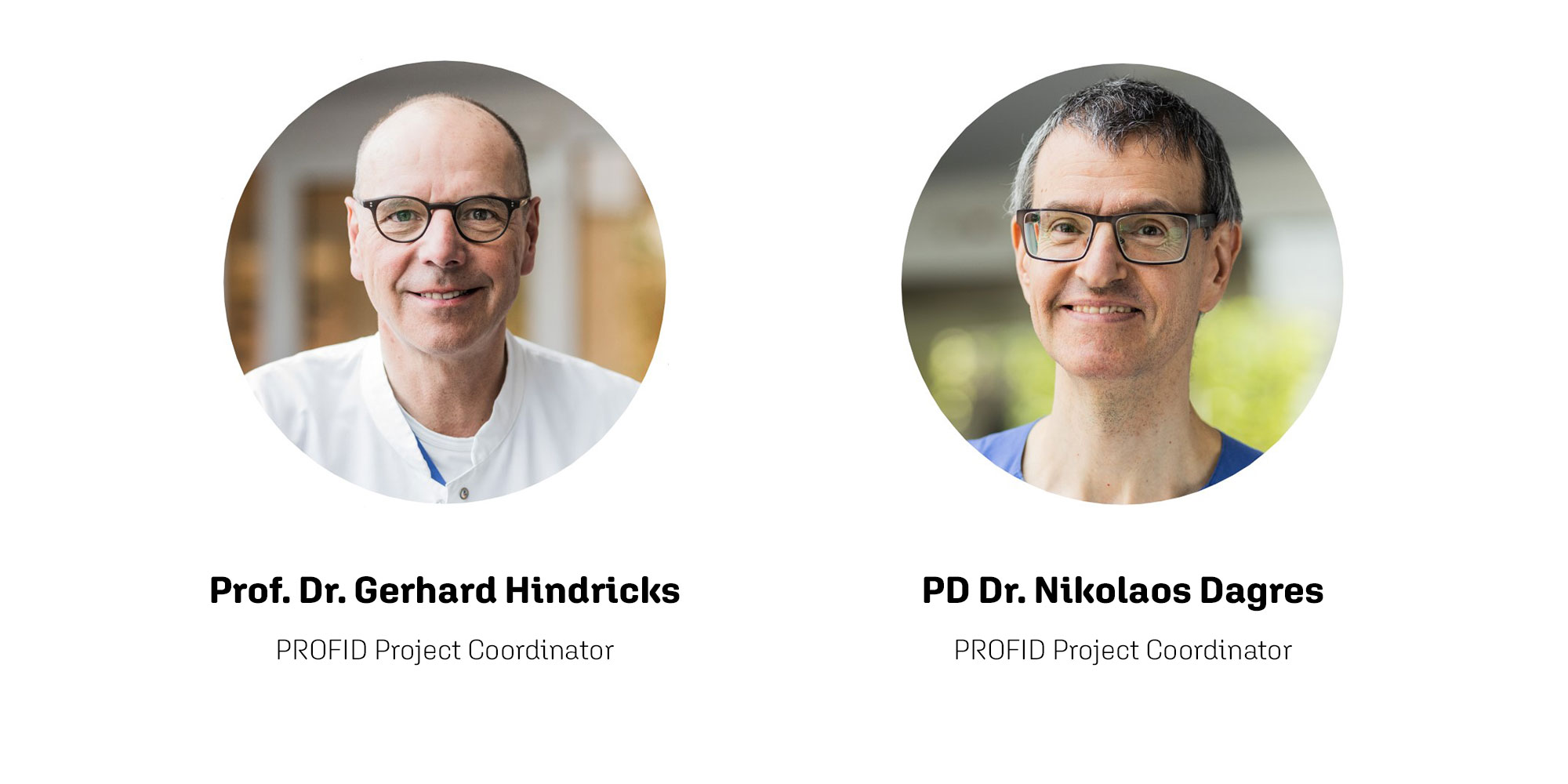1. Why is PROFID such an important project for you?
Gerhard Hindricks: “Sudden cardiac death is a huge unsolved public health problem. It accounts for ~20% of all deaths in Europe! We can protect the patients effectively by implanting a defibrillator if we identify who is at risk. Unfortunately, we currently do not have the tools to do this. So, many of the defibrillators that are implanted will never be needed. On the other hand, many patients die because we do not have the tools to recognize that they are at risk. We need to change this for the sake of our patients.”
Nikolaos Dagres: “The consequences of the limitations that Gerd described for society and individuals are devastating. This is probably the field, in which we can achieve maximal impact for our patients and our societies. This is why PROFID is so extremely important.”
2. What is your goal? What do you want to achieve?
Gerhard Hindricks: “In PROFID we have high ambitions. We want to introduce a disruptive innovation in the prevention of sudden cardiac death in patients that had a myocardial infarction and change clinical practice. We want to identify patients at risk for sudden cardiac death and protect them effectively.”
3. How are you going to do that?
Gerhard Hindricks: “We are going to do that in two steps. First, we are developing at the moment a clinical prediction model that will predict the individual risk of sudden cardiac death. The model is based on a collection of already existing highly phenotyped data with the largest number of post- myocardial infarction patients ever analyzed in this regard. These are many hundred thousands patients.”
Nikolaos Dagres: “After that, we will conduct two parallel large randomised clinical trials in order to prove that a personalized decision on defibrillator implantation considering the individual risk is superior to clinical practice.”
Gerhard Hindricks: “These are the largest cardiac device trials ever conducted. We are currently making all the preparations that are necessary.”
4. Who is involved in this project?
Nikolaos Dagres: “We are very proud that we could form a unique composition of the PROFID consortium with participation of key opinion leaders, patient organisations, large hospital chains, payers, policy makers and state authorities across Europe.”
5. What comes next?
Nikolaos Dagres: “We are currently in the final development phase of the clinical prediction model. With thanks to the great support of the University of Manchester we will soon be able to present the model to our partners. As almost all research projects, the PROFID project is facing some COVID-19-related delays, but we are optimistic that we can start the clinical trials in a few months.”
Gerhard Hindricks: “I’m very proud of the progress we made so far and the commitment of the partners to the project is amazing. It is our ultimate goal to successfully prevent sudden cardiac death and I’m sure that PROFID will change the quality of care around the globe.”
